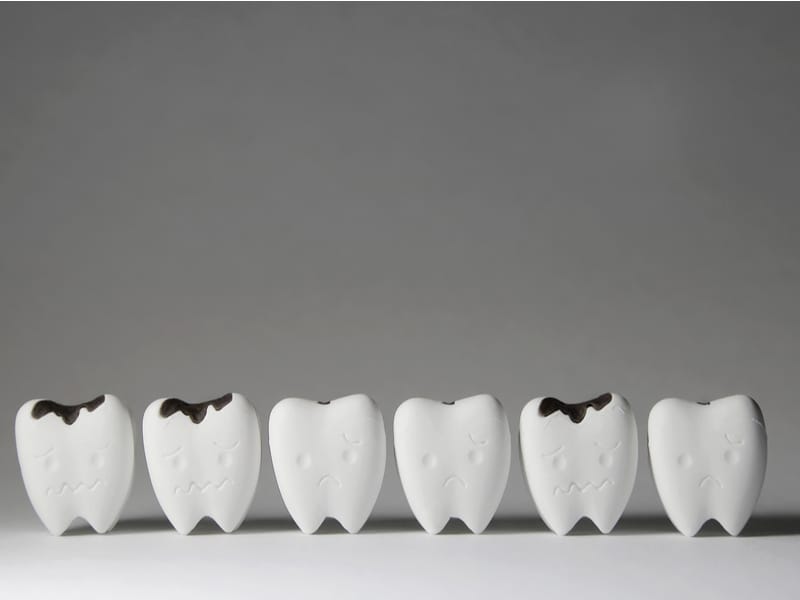What Causes Tooth Decay?
Tooth decay is a lifestyle disease which results in the deterioration of the minerals which coat the tooth. Initially, areas of discolouration can be found on the tooth. As tooth decay advances, the minerals break down and cavities are formed, which can lead to the loss of the tooth.
Tooth decay can be caused by an imbalance between the bacteria and the saliva in the mouth. We all have bacteria that live in our mouths, and these bacteria rely on a diet of sugar to survive. The sugar in the food that we eat sustain these bacteria. However, bacteria produce waste products in the form of acid. It is this acid which binds with existing bacteria to form plaque, which can dissolve the minerals on our teeth, leading to tooth decay.
Luckily, our saliva works to protect the minerals on our teeth against the plaque. However, sometimes, there is simply too much plaque in the mouth and therefore, too much acid for the saliva to counteract. Therefore, eating too many sugary foods and drinks can lead to tooth decay from plaque build-up.
5 Stages of Tooth Decay
1. Demineralisation
The enamel which makes up the outer layer of the tooth is made up of minerals. If there is too much plaque build-up, this outer layer starts to deteriorate. This can be seen when white spots appear on the teeth.
2. Decay of Enamel
At this stage, the enamel starts to deteriorate further. Dark spots or even small holes start to form on the teeth.
3. Decay of Dentine
Dentine is a tissue that can be found under the enamel layer. This layer is softer than the outer enamel and therefore, deteriorates faster. Breakdown of the dentine can also lead to tooth sensitivity, as the dentine is close to the tooth’s nerves.
4. Damage of Pulp
The pulp makes up the inner layer of the tooth and contains both blood vessels and nerves. Once the tooth decay reaches the pulp, it can cause painful swelling.
5. Abscesses
When the tooth decay has reached the pulp and the plaque bacteria has entered the core of the tooth, an infection can occur. This results in pus developing at the bottom of the affected tooth, creating an abscess. Abscesses are usually very painful and require immediate treatment.
Tooth Decay Prevention Tips
Firstly, make sure you maintain good oral hygiene, this includes brushing your teeth twice a day with a fluoride toothpaste and flossing once a day. It is also important to try and reduce the frequency of sugary foods in your diet and have regular check-ups with your dentist.
Dentist in Victoria Park
If you are looking for a Dentist in Victoria Park, our specialist team at Aardent Dental are experts in treating tooth decay. Our dentists have a wealth of experience in cosmetic and general dentistry and we pride ourselves on our personal service.
Book an appointment with us today by calling our practice on 6330 8666.


Recent Comments